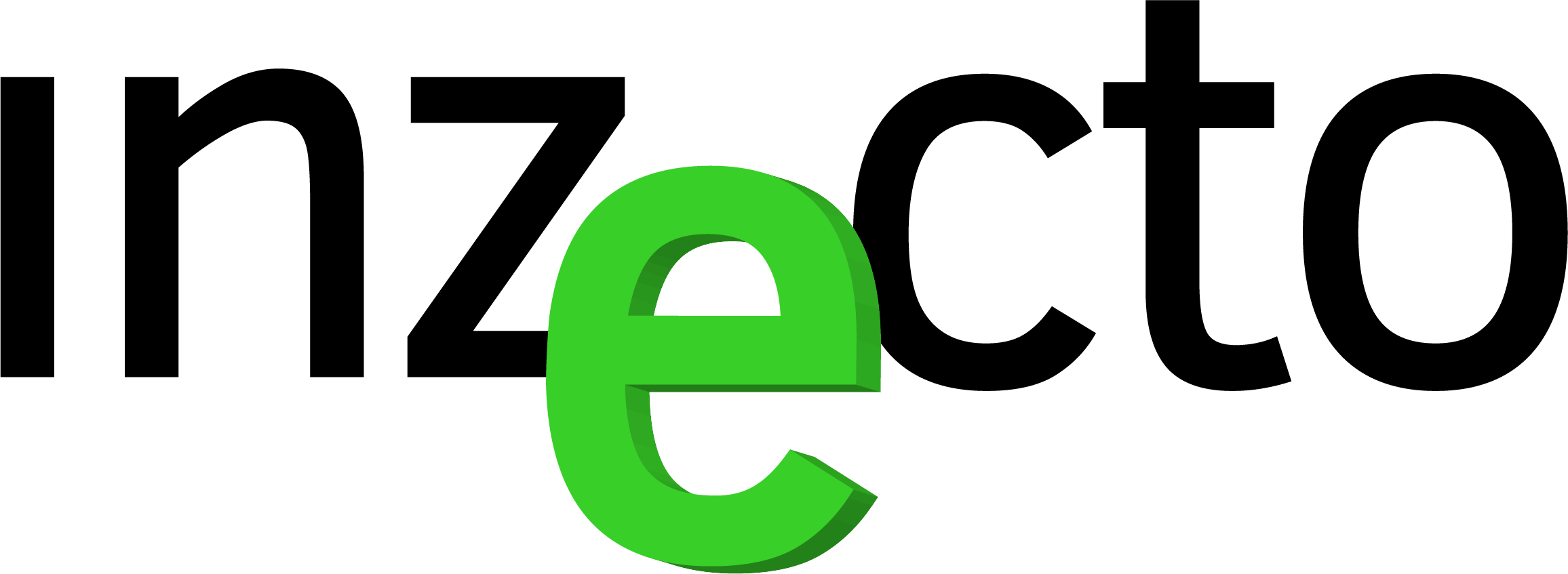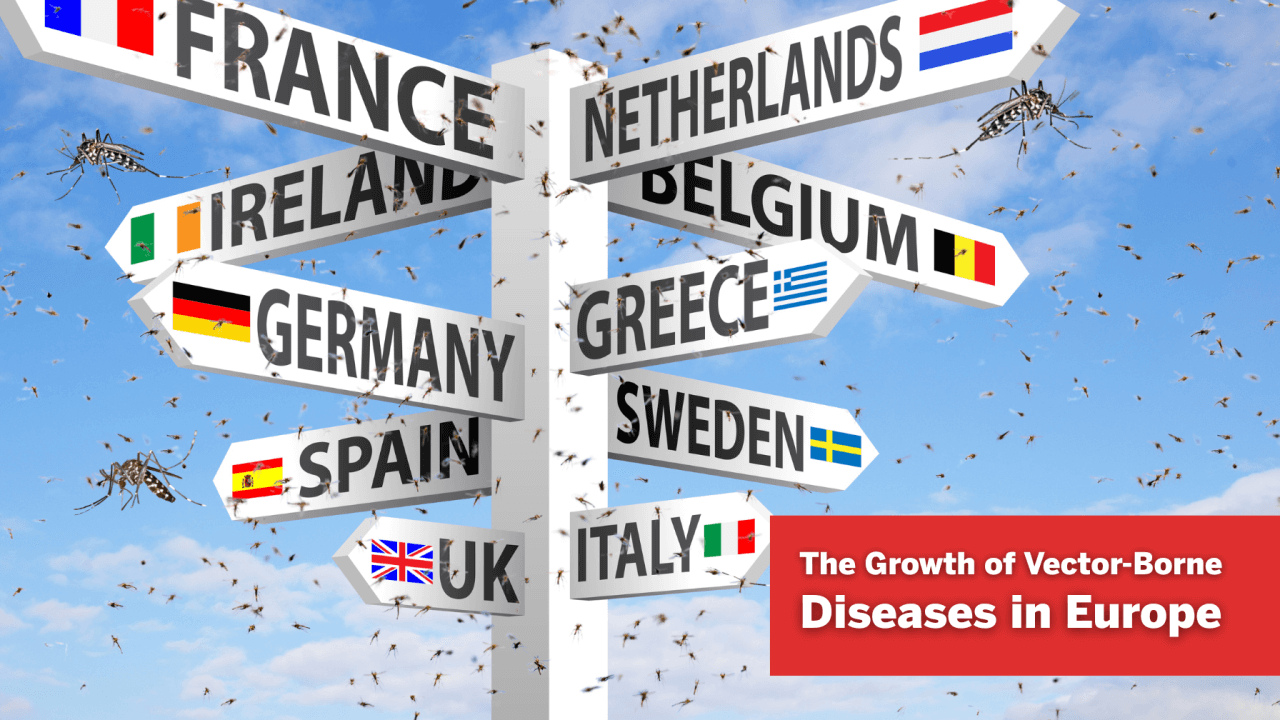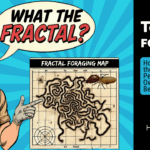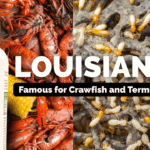In 2024, Europe has faced a concerning surge in insect vector-borne diseases — a trend that’s drawing growing attention from public health officials, urban planners, and environmental scientists alike. At the heart of this issue lies the rapid expansion of two mosquito species:
- Aedes albopictus (commonly known as the Asian tiger mosquito)
- Culex species, known vectors of the West Nile virus
What’s Fueling the Rise?
2. Global Travel and Tourism: The increase in international movement, particularly in and out of tourist hotspots, has accelerated the spread of mosquito-borne viruses across borders. An infected traveler can unknowingly introduce pathogens into mosquito populations in new regions.
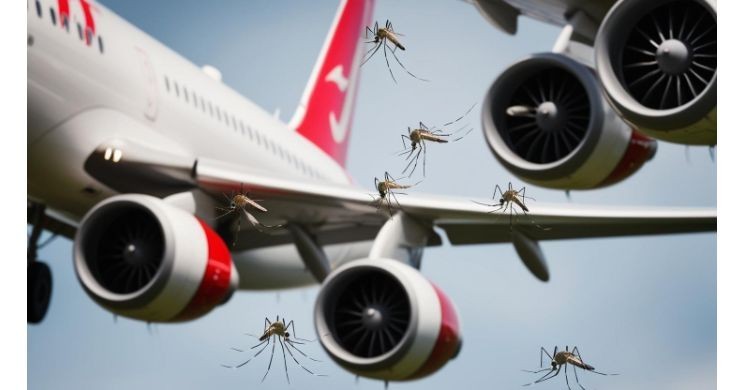
Disease Outbreak Highlights (ECDC Report, 2024)
🦟 Dengue Fever in Italy
- 2023: 377 total cases (295 imported, 82 indigenous)
- 2024: 667 total cases (460 imported, 207 indigenous)
This nearly 77% year-over-year increase signals not only greater exposure abroad but a stronger foothold of the virus within Italy itself.
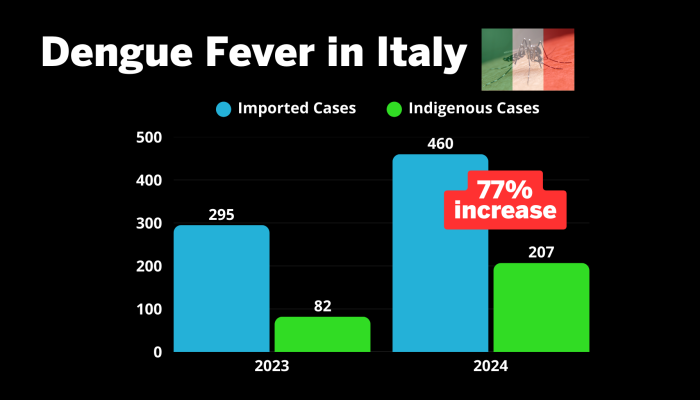
🦟 West Nile Virus in Spain
In the Seville region, five fatalities were recorded in 2024, all linked to infections caused by Culex mosquitoes. West Nile virus is particularly dangerous due to its ability to cause neurological complications and even death in vulnerable populations.
🦟 Chikungunya in France
Just before the 2024 Summer Olympics, France reported a locally acquired case of Chikungunya in Paris, a clear indication that urban transmission is no longer a distant threat but a present reality.
Why Traditional Methods Are No Longer Enough
However, traditional mosquito control efforts like large-scale spraying often fall short:
- Limited effectiveness in urban landscapes with hidden breeding sites
- Potential harm to non-target species and the environment
- Growing public resistance due to chemical use
The INZECTO European Model
Targeted, Sustainable, and Scalable Urban Mosquito Control
At INZECTO , we believe smarter problems require smarter solutions. Our patented INZECTO Mosquito Traps and Chips are designed specifically for urban mosquito control with a focus on breaking the mosquito life cycle at the larval stage.
The Path Forward
As Europe (and the rest of the world) grapples with the rising threat of vector-borne diseases, it’s time for municipalities, pest control operators, and public health agencies to rethink how they approach mosquito control in high-risk urban environments.
INZECTO is committed to partnering with cities and professionals who want to protect their communities using innovative, data-driven tools that deliver measurable results.
👉 Interested in learning how INZECTO can support your mosquito control strategy? Let’s connect or visit inzecto.com to learn more.
